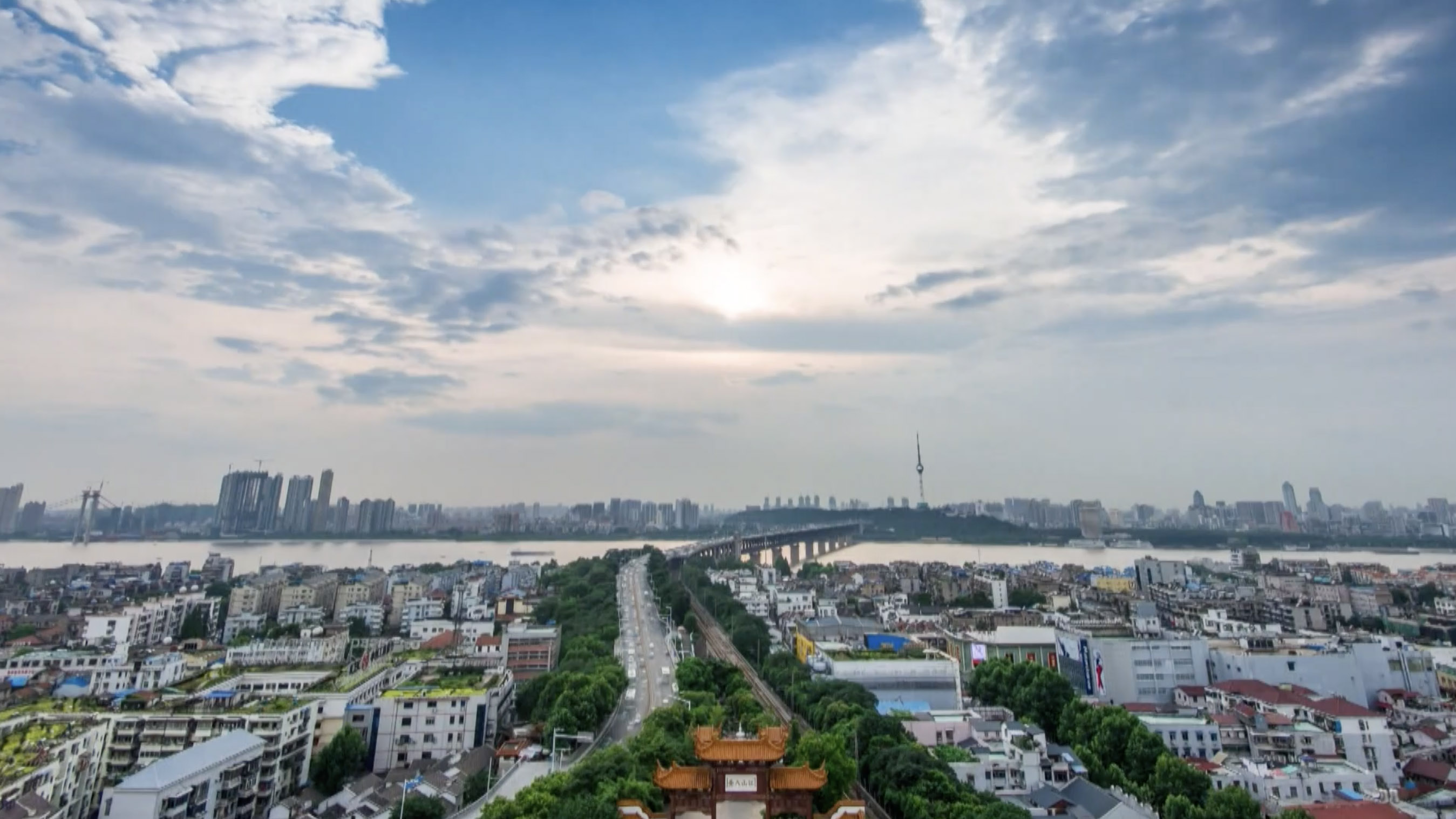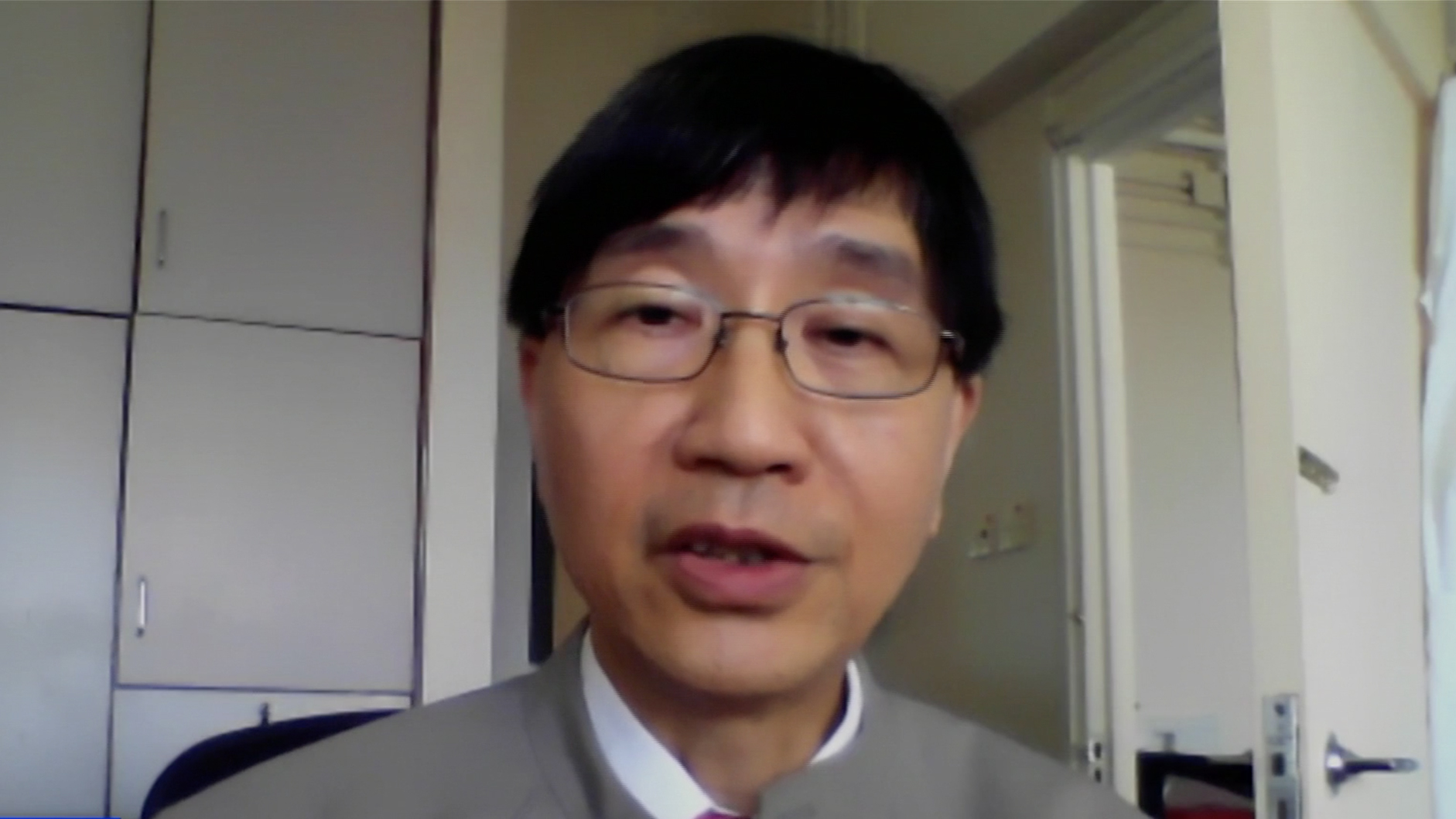03:02

After five months of hard work, China has contained the spread of COVID-19. Now the discussion has shifted to how the country can continue to reopen its economy, along with its borders, while preventing a second wave of infections. In an exclusive interview with CGTN's Tian Wei, Professor Yuen Kwok-Yung of Hong Kong University's Microbiology Department gave his insight and advice on China's next phase efforts of virus containment.
"I don't see any reason why we should not allow people to travel into China," he said. As a member of the high-level expert team that China's National Health Commission assembled following the outbreak of COVID-19, Professor Yuen has witnessed firsthand the devastation the virus has caused in the country. He stressed that without resuming traveling and business interactions, "the economy will be so bad that it can be worse than the pandemic."
China's gross domestic product fell by 6.8 percent in the first quarter of the year, making the first contraction of its kind in decades, as a result of the impact of COVID-19. To shore up the economy, the Chinese government has rolled out a series of measures to boost economic recovery.
Yuen urged countries to start discussing ways to resume urgent travel as soon as possible. "Remember, this virus is not going to go away until you have a very good and very safe vaccine," he said, "and remember, you can't produce so much vaccine within such a short time."
In recent weeks, two charter flights organized by the German Chamber of Commerce in China have landed in China from Germany. All the passengers underwent medical checks before departure and will undergo a second test for the virus on arrival, as well as undergo a 14-day quarantine.
01:59

Asked if such procedures might prove to be too complicated and troublesome for many travelers, Yuen said, "I think everybody has to accept the new normal. It is a new normal because the pandemic situation is still there."
Another part of the new normal is wearing masks, he said, because the vast majority of people in China have no immunity to the virus – a result of China's effective containment of the virus.
A recently published report that sampled more than 17,000 people in China shows the percentage of antibody-positive people in Wuhan is 3.8 percent and for the city of Chengdu is 0.58 percent.
In Hong Kong, a test of 500 residents found zero persons to have antibodies for the novel coronavirus, according to the professor.
"It is both good and bad," said Yuen. "Low herd immunity means that the control measure has been very good. But the bad news is that if you cannot control the border and there are viruses going in with incoming travelers, then you can get into trouble."
Yuen acknowledged that the general public is getting fatigued from following tight hygiene measures for months since the outbreak started. Yet he stressed that "we must continue to wear masks and we must continue to do extensive testing."
World Insight with Tian Wei is an international platform for debate and intelligent discussion. It is the meeting point of both the highly influential and rising voices, facilitated by host Tian Wei. It provides nutrition to form your own thoughts and ideas through a 45-minute live debate and interviews.
Schedule: Monday-Saturday
Time (GMT): 1415, 2015
(If you want to contribute and have specific expertise, please contact us at opinions@cgtn.com.)